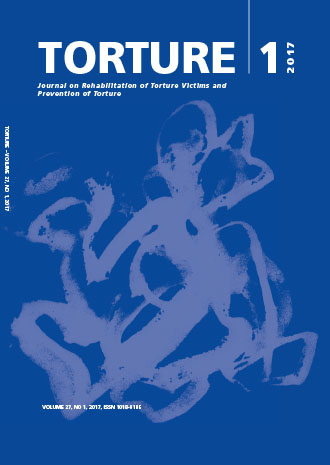Effective and humane ways to manage the drug problem in the Philippines, a human rights and public health perspective
DOI:
https://doi.org/10.7146/torture.v27i1.26541Abstract
We, at the Medical Action Group (MAG), a health and human rights organization, are uniquely placed to see a particularly disturbing aspect of Duterte’s drug war: it disproportionately targets the poor and vulnerable. A five-year-old girl was killed in late September 2016 after suspected gunmen aiming to kill her grandfather opened fire. A picture went viral of a wife weeping while cradling her husband, a pedicab driver and alleged drug peddler, who was shot and killed by men on motorcycles on the street of Pasay City. Filipinos immediately associated this image with Michaelango’s famous Pietà sculpture. A cardboard sign next to his body carried the chilling message “Pusher ako, wag tularan” (I’m a pusher, don’t do what I did). We see both the drug war’s human toll and, from their story, we learn the crushing poverty of the majority of its victimsDownloads
Published
2017-10-10
How to Cite
Briola, J. M. (2017). Effective and humane ways to manage the drug problem in the Philippines, a human rights and public health perspective. Torture Journal, 27(1). https://doi.org/10.7146/torture.v27i1.26541
Issue
Section
Letter to the Editor
License
We accept that some authors (e.g. government employees in some countries) are unable to transfer copyright. The Creative Commons Licence Attribution-NonCommercial-NoDerivatives 4.0 International (CC BY-NC-ND 4.0) covers both the Torture Journal and the IRCT web site. The publisher will not put any limitation on the personal freedom of the author to use material contained in the paper in other works which may be published, provided that acknowledgement is made to the original place of publication.


